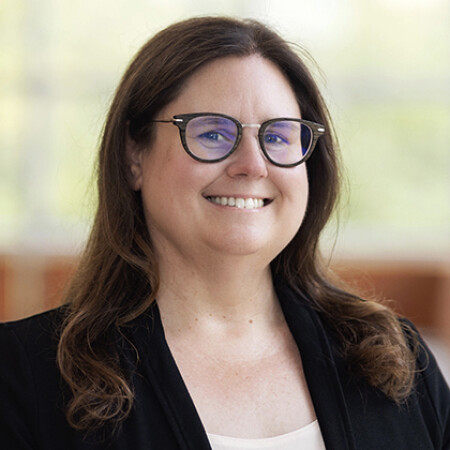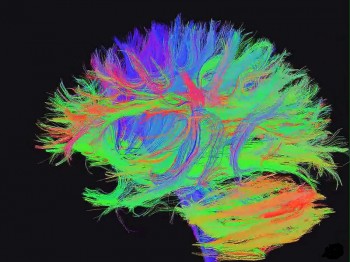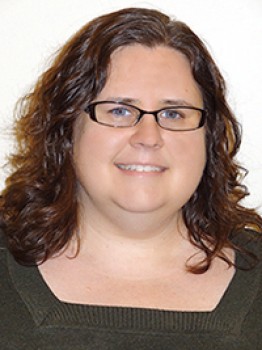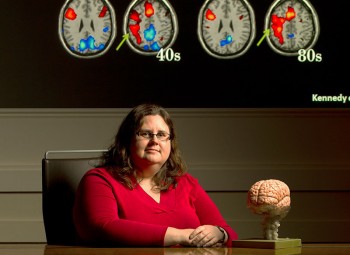Research Associate/Postdoctoral Fellow - Cognitive Neuroscience of Aging
University of Texas at Dallas - 2012

Kristen Kennedy
Professor - Department of Psychology
Research Interests: Normal and pathological (AD) aging of brain and cognition; environmental/genetic/health/lifestyle modifiers; MRI brain function-structure association
972-883-3739
VP 8.15A
Kennedy Neuroimaging of Aging and Cognition (KNAC) Lab
KNAC Lab Twitter
Curriculum Vitae
ORCID
Not currently accepting undergraduate students
Professional Preparation
Postdoctoral Fellowship - Urban Health & Aging Disparities
Institute of Gerontology, Wayne State University - 2008
Institute of Gerontology, Wayne State University - 2008
PhD - Psychology (emphasis in Lifespan Cognition & Neuroscience)
Wayne State University - 2007
Wayne State University - 2007
MS - Clinical Neuropsychology
Emporia State University - 2000
Emporia State University - 2000
BA - Psychology
Hendrix College - 1996
Hendrix College - 1996
Publications
Age-related cerebello-thalamo-cortical white matter degradation and executive function performance across the lifespan 2025 - Other
Coupled Aging of Cyto‐ and Myeloarchitectonic Atlas‐Informed Gray and White Matter Structural Properties 2025 - Journal Article
Geospatial environmental complexity, spatial brain volume, and spatial behavior across the Alzheimer's disease spectrum 2024 - Journal Article
Coupled aging of cyto- and myeloarchitectonic atlas-informed gray and white matter structural properties 2024 - Other
Differential Effects of Aging on Regional Corpus Callosum Microstructure and the Modifying Influence of Pulse Pressure 2024 - Journal Article
Differential effects of aging on regional corpus callosum microstructure and the modifying influence of pulse pressure 2023 - Other
Functional activation features of memory in successful agers across the adult lifespan 2022 - Journal Article
Appointments
Assistant Professor
The University of Texas at Dallas [2012–2018]
The University of Texas at Dallas [2012–2018]
Associate Professor with Tenure
The University of Texas at Dallas [2018–2023]
The University of Texas at Dallas [2018–2023]
Professor
The University of Texas at Dallas [2023–Present]
The University of Texas at Dallas [2023–Present]
News Articles
Scientists Aim to Identify the Neural Signature of Healthy Brain Aging
Younger people efficiently engage brain processes necessary to perform a task, while at the same time “shut down” processes irrelevant to the task, according to new research from the Center for Vital Longevity (CVL) at UT Dallas.In addition, this ability to modulate, or control, brain activity appears compromised in older adults, said Dr. Kristen Kennedy, assistant professor at the center and the School of Behavioral and Brain Sciences.
Alzheimer's Study Delves into Degraded Connections in the Brain
 A new study from the Center for Vital Longevity at The University of Texas at Dallas is among the first to investigate how degraded connections in certain parts of the adult brain might affect the ability to perform the financial calculations that are vital to everyday life among older adults.
A new study from the Center for Vital Longevity at The University of Texas at Dallas is among the first to investigate how degraded connections in certain parts of the adult brain might affect the ability to perform the financial calculations that are vital to everyday life among older adults.The results, published in the most recent issue of the Journal of Alzheimer’s Disease, relied on imaging the white matter connections within the brain and measuring how intact the connections are. Researchers found a correlation between the integrity of white matter — the tracts that allow communication between different brain regions — and the ability to calculate finances.
Psychological Science Group Honors Vital Longevity Researchers
 Dr. Karen Rodrigue and Dr. Kristen Kennedy have been recognized by the Association for Psychological Science (APS) as Rising Stars. Rodrigue and Kennedy joined the UT Dallas Center for Vital Longevity as assistant professors in 2012.
Dr. Karen Rodrigue and Dr. Kristen Kennedy have been recognized by the Association for Psychological Science (APS) as Rising Stars. Rodrigue and Kennedy joined the UT Dallas Center for Vital Longevity as assistant professors in 2012.The APS Rising Star award highlights early career psychologists from around the world who are making a significant impact in the field of psychological science.
“Both of these young scientists have international reputations in the field of neurocognitive aging,” said Dr. Denise Park, co-director of the Center for Vital Longevity and Distinguished University Chair in Behavioral and Brain Sciences. “What is exciting to me is that their most important work is still ahead of them. I am thrilled to have them at the Center for Vital Longevity.”
Prof Studies White Matter for Insights into the Aging Brain
Dr. Kristen Kennedy is looking to the brain’s white matter for clues about how the brain changes as we age and why some people are able to maintain good cognitive health while others are not.Nearly half the human brain is white matter, which consists of millions of bundles of nerve fibers that connect neurons in different brain regions into functional circuits.
Kennedy joined the UT Dallas faculty this year as an assistant professor in the School of Behavioral and Brain Sciences (BBS) and UT Dallas’ Center for Vital Longevity.
Study Finds Which Brain Skills Are More Likely to Last over a Lifetime
 Research from the Center for Vital Longevity (CVL) at The University of Texas at Dallas has shed new light on which cognitive processes tend to be preserved with age and which ones decline.
Research from the Center for Vital Longevity (CVL) at The University of Texas at Dallas has shed new light on which cognitive processes tend to be preserved with age and which ones decline.Results from a study recently published in NeuroImage confirm behavioral findings that verbal ability — the accurate memory of words and vocabulary — remains intact during a lifetime while reasoning ability decreases in older adults.